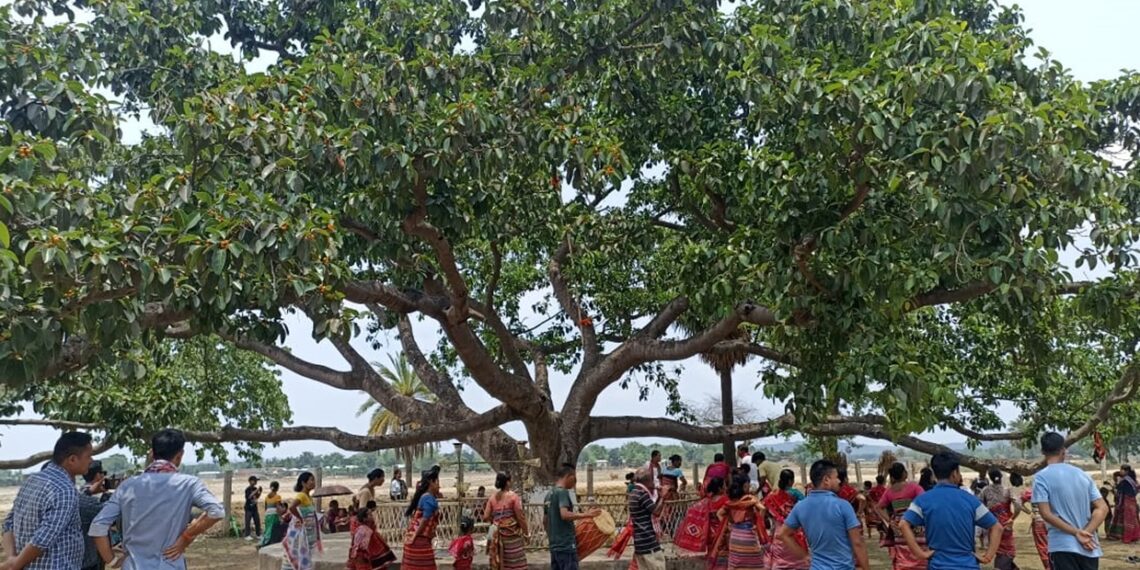AMPATI: In Chenga Benga Gandhipara, South West Garo Hills, the vibrant spirit of the Koch community came alive as they celebrated the Pabuni Puja, known as the Koch National Festival.
Organised by the Meghalaya Koch Association and Meghalaya Koch Students’ Union, this annual event holds deep cultural significance and is cherished as one of the most joyous occasions among the Koch people.
The festivities unfolded at the Pabuni shali (shrine), where villagers gathered to partake in ancient rituals led by the deusi (priest), with assistance from Chathung laoni.
Offerings of chokot (rice beer) and fap (rice cake) were presented to the goddess, symbolising prayers for protection for both the cattle and the villagers.
Amidst the rhythmic beats of traditional instruments, the air was filled with music and the spirit of camaraderie as the celebration culminated in a lively dance.
The central prayer, “O’ Pabuni ame, Nok bhora morot dong, Chasang bhora mai, Goli bhora masu dong Morot, masu, tao, wak, purung pelem tonghun bakimung ning wai riki lito lito,” echoed through the gathering, encapsulating the reverence and gratitude expressed toward the goddess.
The Pabuni festival is not only a time of religious observance but also a celebration of nature and love.
It is believed that the deity, situated beneath a majestic banyan tree adorned with decorated bamboo posts, embodies the essence of all natural elements and the spirit of love within human hearts.
Beyond its religious significance, the festival serves as a symbol of hope and prosperity, signifying a collective effort to safeguard all living beings and promote community well-being.
As the Koch community continues to uphold their rich traditions, the Pabuni Puja stands as a testament to their cultural heritage and unity.















